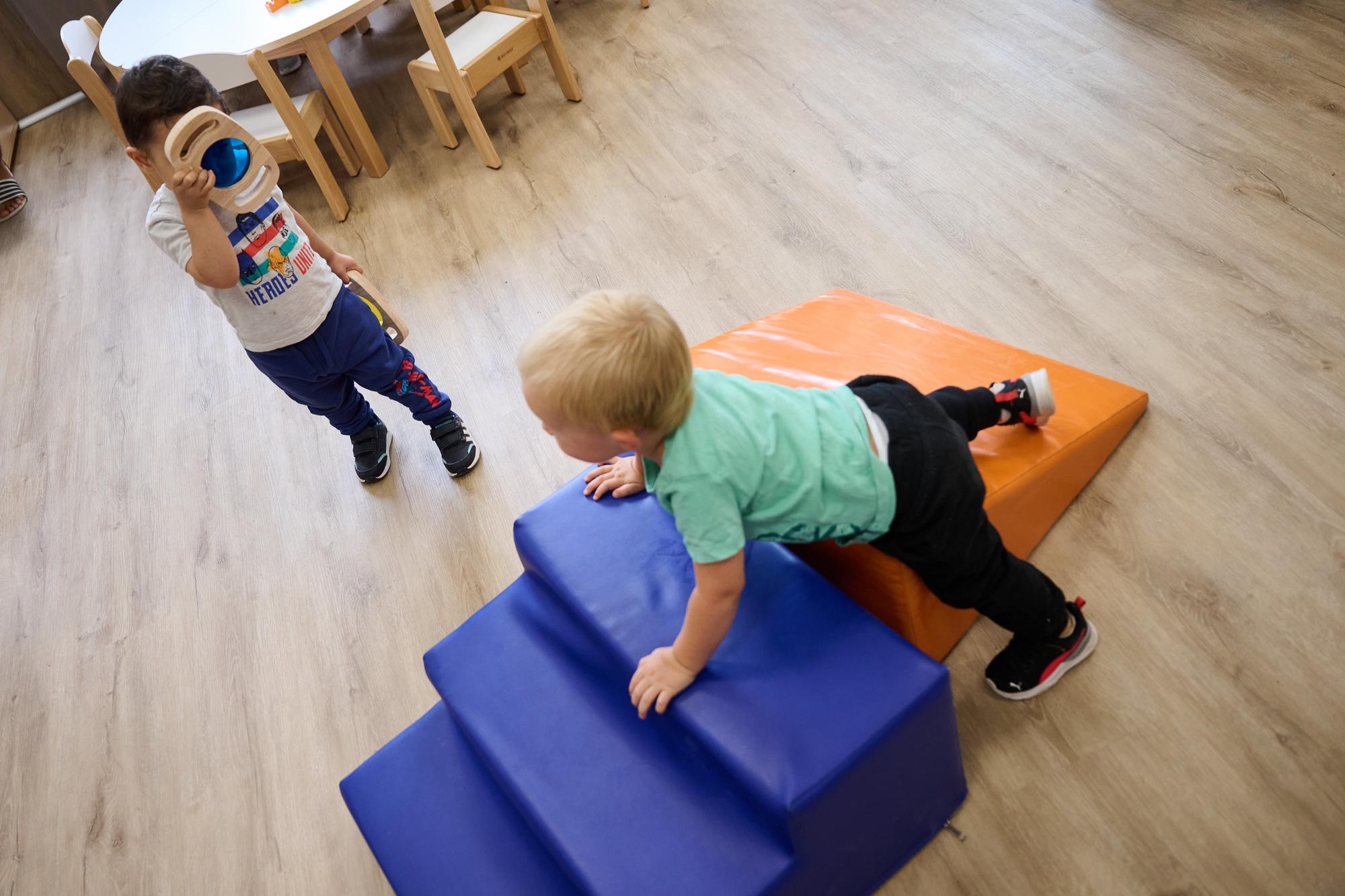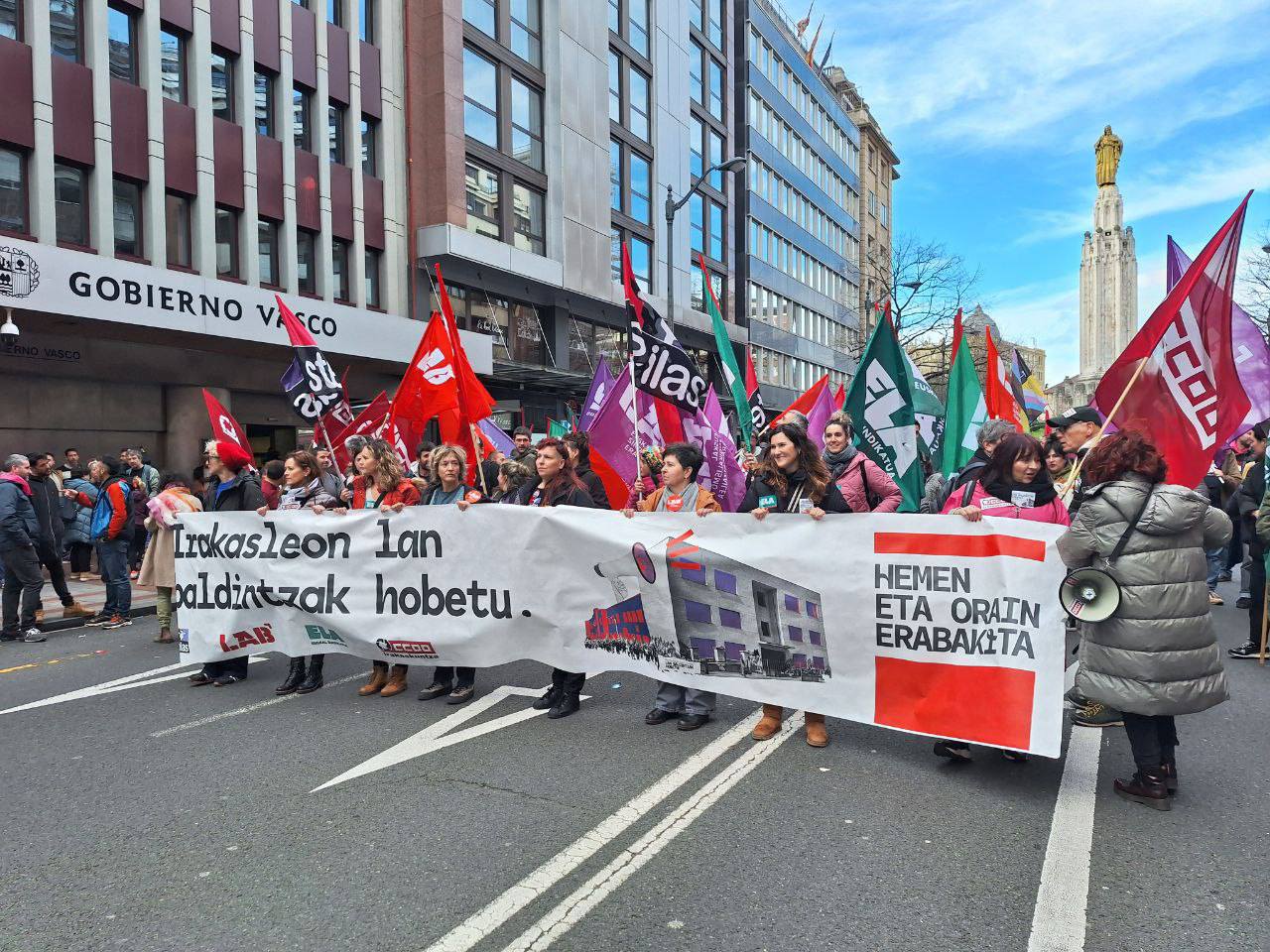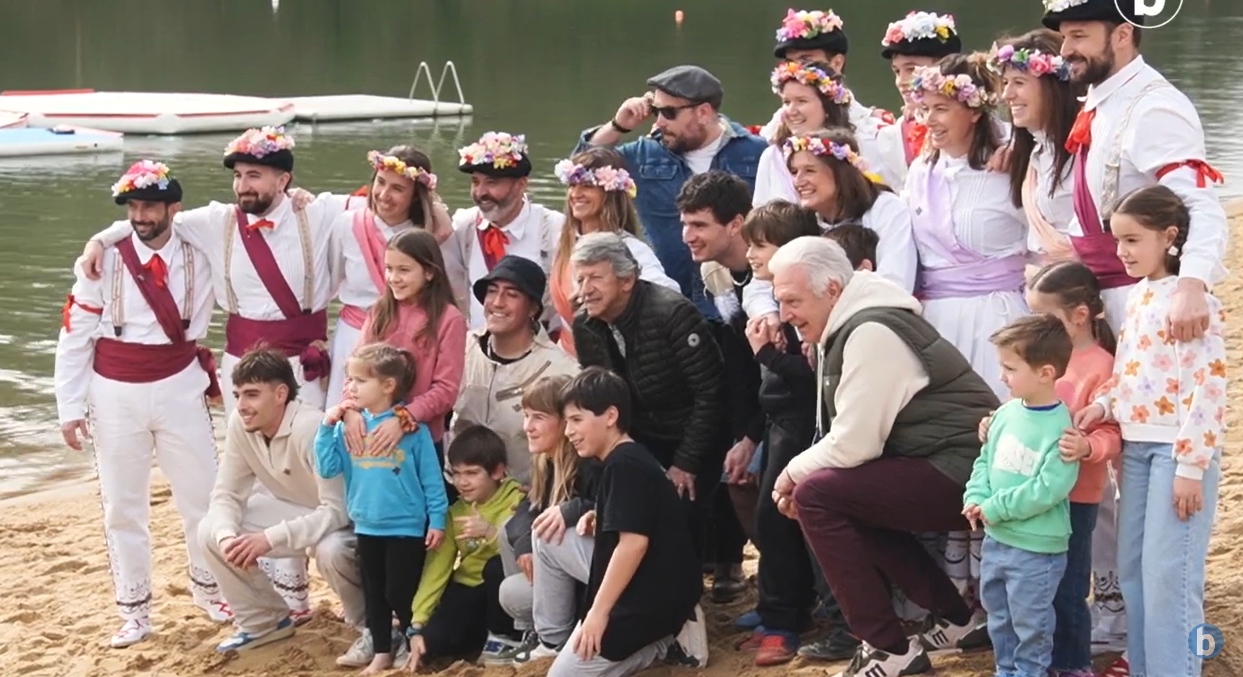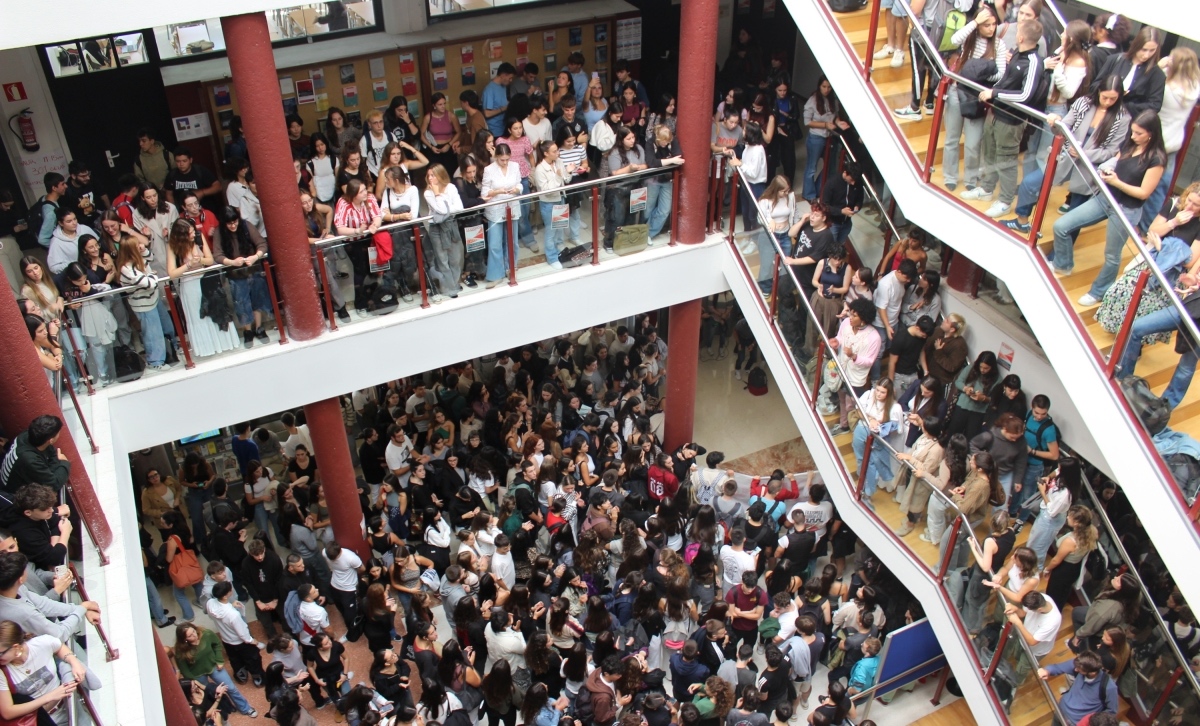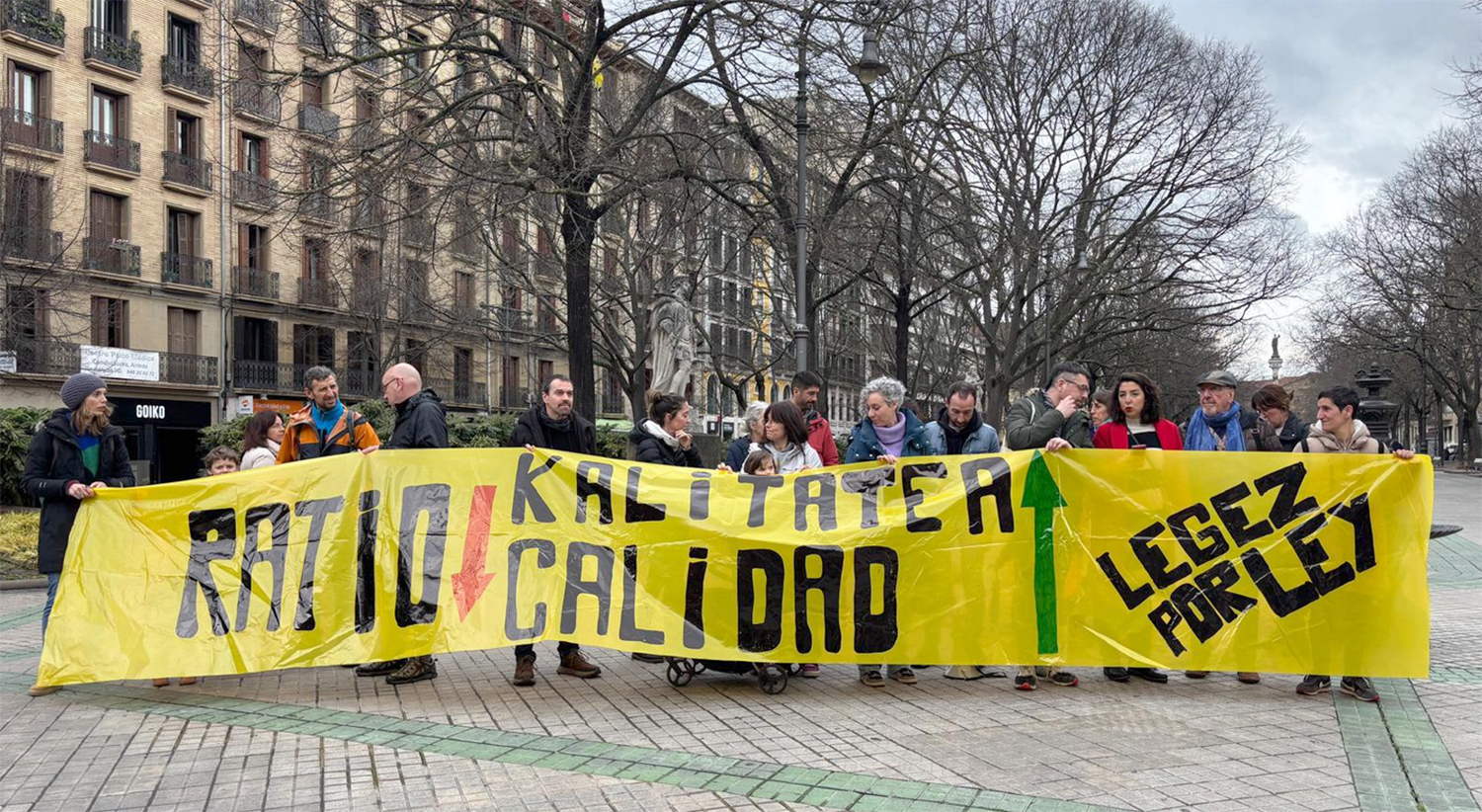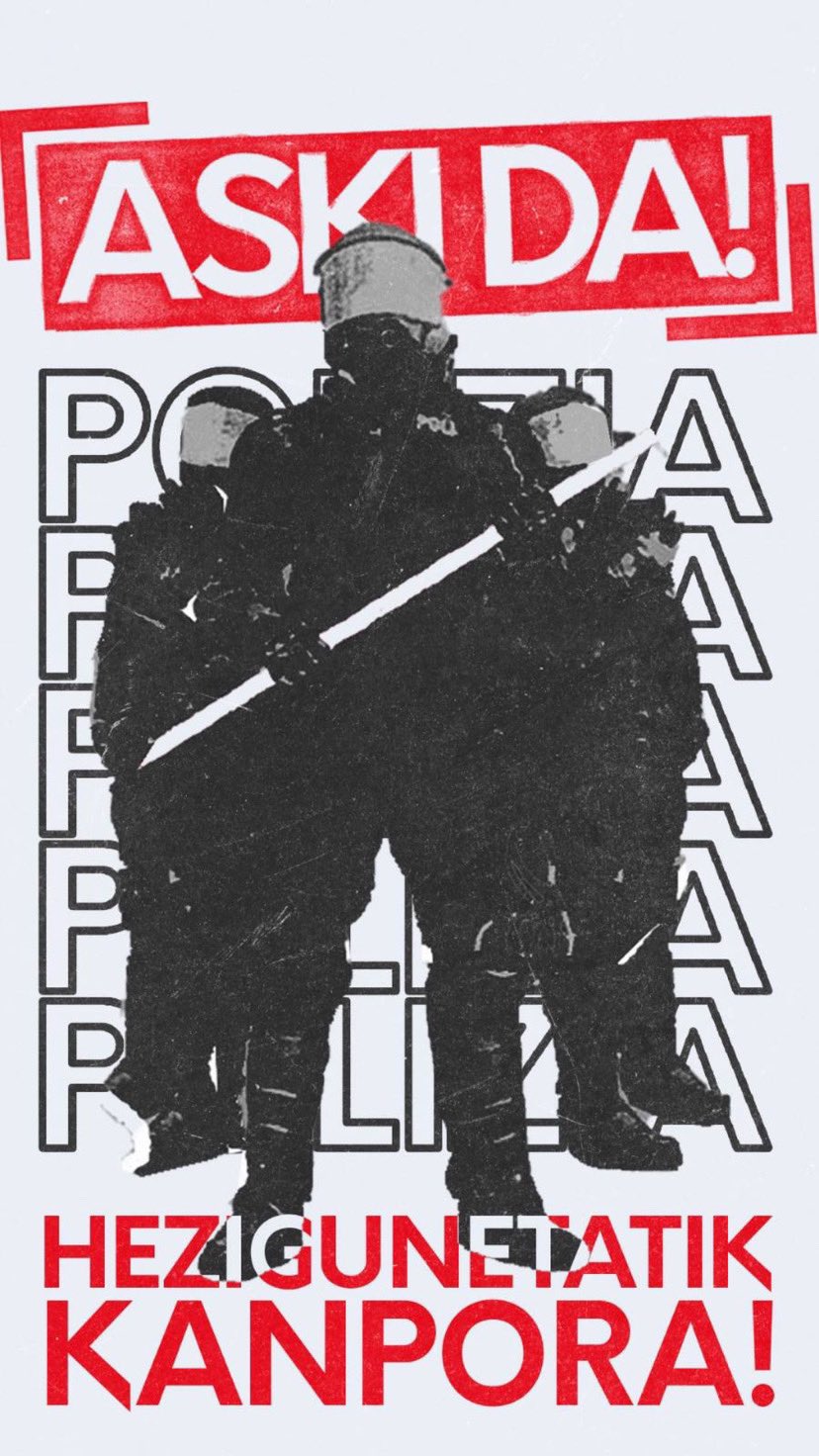Hik Hasi gives way to research at Summer Pedagogical Meetings
- We present the Hik Hasi Summer Pedagogical Meetings at the Faculty of Education, Philosophy and Anthropology at the UPV/EHU of Donostia. Beñat Amenabar, dean of the Faculty of Education, Philosophy and Anthropology at UPV/EHU, Esti Amenabarro, professor and researcher at the Faculty of Education, Philosophy and Anthropology, and Ainha Azpirotz Hik Hasi have been present. This year’s meetings are an important novelty: research will take place at an open seminar on campus. Because we are investigating the pedagogical relationships between the UPV/EHU and high school teachers Hik Hasi elkarrekin. In addition, there will be 30 courses, with leading topics, such as a course in Basque on neuroregeneration or that offer tools for the pedagogical transformation of Primary.

Beñat Amenabarro, dean of the Faculty of Education, Philosophy and Anthropology at UPV/EHU, highlighted in the presentation the collaboration between the UPV/EHU and HIK HASI. As every year, the Meetings will be held jointly between the two entities. In addition, this collaboration will take another step this year, as the research we are conducting jointly between the UPV/EHU and HIK HASI will be accommodated on campus.
Esti Amenabarro, professor and researcher at the Faculty of Education, Philosophy and Anthropology, has presented the essence of the research that will lead the summer meetings:
“From Hik Hasi and the UPV/EHU we are conducting a study on the relations between the ESO faculty and its pedagogical character. The objective is to analyze the influence of teacher relations in the pedagogical sphere and, later, to develop proposals to improve relations and pedagogical activity. In the research, we sought to gather the concerns, dilemmas, difficulties, joys and dreams that high school teachers have when they perform their daily activities. The challenge is to know the relations that are established between the faculty, which organize the rest of the school processes, while helping to know the school climate. It is essential to focus the well-being and care of teachers”.
Education in Basque; Scape Roomas, Montessori...
Ainhoa Azpirotz Hik Hasi has pointed out that in total there will be 31 courses to choose from, ten of which are designed specifically for parents, one of the important axes has been to offer tools to deepen the pedagogical transformation that is taking place in Primary, at a time when many centers are making a pedagogic leap, we will offer a series of leading courses that help the transformation. Among them is Neurohection. David Castrillo, expert in Neuroregeneration and head of studies at the Mendigoiti College of Pamplona. It will offer a course titled Taking into account the limited possibilities of classroom learning that occur, it is important to highlight this course.
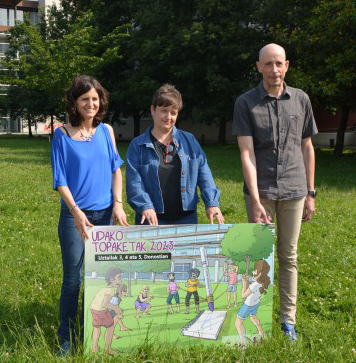
Neuroscience, applied to pedagogy, shows us how the brain (children, people) learns. As David Castrillo says, "We learn through the brain. However, in education it is a fairly unknown organ and teachers generally have little knowledge of its functioning. Knowing this better is very important.” Castrillo talks about Leslie Hart's words: “Designing a pedagogical experience without understanding the brain is like designing a glove without understanding a hand.” In this sense, it is a new discipline born in recent years. It is not a method, but a new look at education that links pedagogical and psychological knowledge to the functioning of the brain. It is therefore an interdisciplinary approach whose main objective is the creation of a culture based on science from research and empirical evidence when making a decision. Today, thanks to advances in technologies, we have an increasing knowledge of the brain and, as David Castrillo points out, teachers have to be fluent enough to show interest and acquire new knowledge in order to improve the work of educators."
Azpirotz has pointed out that there will be more courses on leading topics: "Professor Iera Arrieta will present the motivation and interest of students, for example Escape generating digital and physical room. Special mention deserves the Joxe Mari Auzmendi Education Scholarship: Working the reflection through the cooperative dialogue that Imanol Alvarez and Garikoitz Moya will offer".
Besides Primary and Secondary Education, in the meetings there will be courses for all stages "and therefore for Early Childhood Education, among others: From the perspective of Montesso, a childhood companion, through the cooperative dialogue Haur lantzen or the prevention of neurosis at the beginning of life".
- On 3, 4 and 5 July the Hik Hasi Summer Pedagogical Meetings will take place.
- The courses will be held at the HEFA faculty of the UPV/EHU of Donostia.
- Each year some 400 educators from all networks and from all over the Basque Country meet at the Summer Meetings.
- Registration is open until 15 June.
2: Neuroregeneration: How does the brain learn? David Castrillo
3: Prevention of neurosis in early life. Ane Sofedo
4: Expression by painting, clay and motion. Benjamin Barandalla.
5: Setting limits taking care of self-esteem. Nerea Mendizabal
6: In childhood he accompanies Montesso. Maite Ruiz
7: Working on reflection through cooperative dialogue. Imanol Alvarez and Garikoitz Moya
8: Education and psychological astrology. A pedagogical revolution. Izaro Susperregi
9: Elaboration of death. Patxi Izagirre and Ane Izagirre
11: Happy mental training and dreams! Urko Arozena
15: Educating in creativity, living in culture. Gotzon Barandiaran, Ihitz Iriart, Iratxe Retolaza
16: Create and create, count. Ixabel Agirresarobe
17: Personal training. Ainhoa Gorostidi
18: Surveillance zones: personal care, care of the other. Eider Zuriarrain
19: Yoga and concentration techniques at school. Marina Pintos
21: Neuroludokinesthesia. Aitor Zenarruzabeitia
22: Theatre techniques: pedagogical instrument for education. Esther Uria
24: Look and resources for direction. Iñaki Arana and Iratxe Vazquez
26: Escape creating digital and physical room. María Arrieta
Iruñeko haur eskoletako zuzendariek, EH Bildu, Geroa Bai, Zurekin Nafarroa eta PSNren arteko akordioa kritikatu dute. “Murgiltze ereduaren alde egin dugu beti, baina inoiz ez da gure iritzia kontutan hartzen” salatu du Euskalerria Irratian, Garikoitz Torregrosa... [+]
Zinez txalogarria, eskolako irakasle talde jakin baten borondatez, eta zenbait gurasoren inplikazioz, A ereduko ikastetxe estigmatizatu bat D ereduko eskola bilakatzeko abian jarri duten prozesua Gasteizko Judimendi auzoan. Honela, posible egiten ari dira Araba, Bizkaia eta... [+]
2025-2026 ikasturterako matrikulazio kanpaina hasi baino bi aste lehenago, Hezkuntza Saileko arduradunengana jo genuen, itunpeko eskoletako gelen ituntze maila ez delako egokitzen demografiaren jaitsierara eta indarrean dagoen lege esparrura.
Hiri gehienetan arazo orokorra... [+]
Eskolako zenbait gurasok euskalduntzeko egindako ahalegina ikusarazi, eta hezkuntza komunitatean euskararen aldeko jarrerak piztu. Helburu horiekin bultzatu du Autobiografia Linguistikoak ekimena Ramon Bajo ikastetxeko Basartea gurasoen elkarteak, Gasteizko Alde Zaharrean. Pozik... [+]
Martxoaren lehenengo lanegunarekin batera, komunikabideetan azalduko ez diren aldaketak etorri dira EHUn. Azken Lan Publikoko Eskaintzaren ondorioz, ehunka langile –arlo tekniko eta administrazio zerbitzutakoak– orain arte okupatzen zuten lanpostutik atera eta beste... [+]
Eskola inguruko natur guneak aztertu dituzte Hernaniko Lehen Hezkuntzako bost ikastetxeetako ikasleek. Helburua, bikoitza: klima larrialdiari aurre egiteko eremu horiek identifikatu eta kontserbatzea batetik, eta hezkuntzarako erabiltzea, bestetik. Eskola bakoitzak natur eremu... [+]
LABek, STEILASek, ELAk eta CCOOek greba egutegi bateratua aurkeztu dute Bilbon: martxoaren 25, 26 eta 27, eta apirilaren 1 eta 2. Egungo hitzarmenak aldarrikatutako edukietatik urrun kokatzen direla adierazi dute, "bai sukaldearen eta garbiketaren kolektiboan zein... [+]
"No entiendo, en castellano por favor" eta gisakoak ohikoak dira eskolako guraso Whatsapp taldeetan, baina Irungo Txingudi ikastola publikoan euskara hutsean aritzeko modu erraz eta eraginkorra dute, behar duenarentzat itzulpen sistema berehalakoa ahalbidetuta.
Ez dakit nondik hasi, egia esan. Ordezkoa naizen heinean –irakaskuntzan ikasturte gutxi batzuk daramatzat lanean– eskola ugari ezagutu ditut Nafarroa, Bizkai eta Araban zehar. Lankide izan ditudan irakasleekin euskal eskolak dituen gabezien inguruan hitz egiten... [+]
“Gogo eta gorputzaren zilbor-hesteak: bi kate. Bi kate, biak ebaki beharrezkoak: bat gorputzaren bizitzeko, bestea gogoaren askatzeko”. Hala dio Mikel Laboaren kantak; hala izan da belaunaldiz belaunaldi, egun arte.
Gogoan dut nire gurasoak askotan joaten zirela... [+]
Matxismoa normalizatzen ari da, eskuin muturreko alderdien nahiz sare sozialetako pertsonaien eskutik, ideia matxistak zabaltzen eta egonkortzen ari baitira gizarte osoan. Egoera larria da, eta are larriagoa izan daiteke, ideia zein jarrera matxistei eta erreakzionarioei ateak... [+]
Elgarrekin izena du Duplak egin duen aurtengo abestiak eta Senpereko lakuan grabatu zuten bideoklipa. Dantzari, guraso zein umeen artean azaldu ziren Pantxoa eta Peio ere. Bideoklipa laugarrengo saiakeran egin zen.
Leporaturikoa ez onarturik, eta sare sozialetako kontuak "lapurtu" zizkiotela erranik, salaketa jarri zuen Arabako campuseko Farmazia Fakultateko irakasleak. Gernikako auzitegiak ondorioztatu du ez dagoela modurik frogatzeko mezu horiek berak idatzitakoak diren ala ez.
Seme-alabek eskolan dituzten ratioekin kezkatuta, Arartekoari kexa helarazi zion guraso talde batek, eta orain zuzenean Parlamentuari egin diote eskaera, “legez berma dadin gure seme-alaben hezkuntzaren kalitatean oinarrizkoa den neurria, unean uneko aurrekontuez edo... [+]
Ikasleen lan politikoa jazartzeko asmoz, Iruñeko Iturraman eta Biurdanan nahiz Bilboko Unamunon izan dira polizia-indarrak, IAk salatu duenez.








